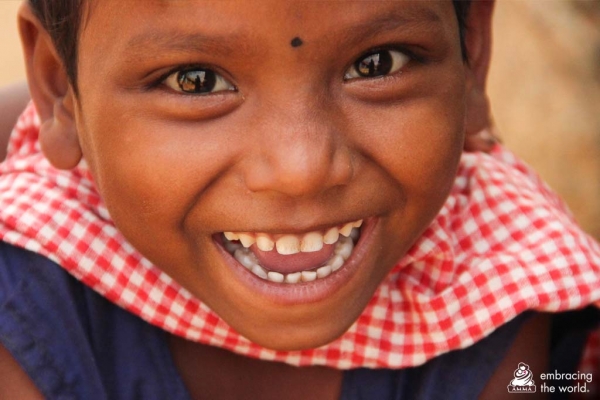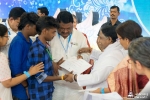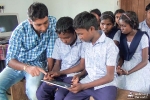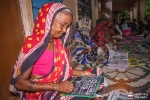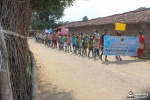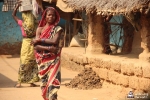“Amrita is honored to have been given this distinction by the Tribal Ministry,” said Dr. Prema Nedungadi, Director, AmritaCREATE (Amrita Center for Research in Analytics & Technologies for Education).
“Our immediate plans are to understand baseline data and the impact of technology in areas such as digital literacy, oral-contraceptive use, oral hygiene, micronutrient deficiencies, digital safety, antenatal-health monitoring, and vaccination, as well as with our Adolescent Ambassadors for Awareness program. We have also already completed awareness training in the dangers of substance abuse to 1,000 tribal students.”
The title recognizes the accomplishments of a multidisciplinary approach to empower tribal communities. Participation comes from a diverse area of Amrita’s departments, including Community Medicine, Public Dentistry, Nutrition and Social & Data Science, as well as AmritaCREATE.
Dr. Nedungadi added, “We are presently focussing to work in the tribal areas of Odisha, Maharashtra, Jharkhand, Chhattisgarh, Rajasthan, Tamil Nadu, Kerala, Andhra Pradesh and Madhya Pradesh.”
The tribal people of India, also known as Adivasis, represent communities that have kept ancient means of livelihood, culture and beliefs. They mostly lived in isolated regions and did not become a part of Hindu, Muslim, Christian and other such cultural systems.
In the 2011 Census of India, Adivasis made up 8.6% of the population, a total of 104 million people. In this current time, the tribal people mostly face serious issues such as endemic poverty and lack of resources like water. Often, these effects are a result of environmental degradation.
Dr. Venkat Rangan is the Vice Chancellor of Amrita Vishwa Vidyapeetham. He said that it is an honor to receive this recognition from the Ministry of Tribal Affairs.
“Chancellor Mata Amritanandamayi Devi’s vision and service to the most impoverished remote and rural areas of the country has paved the way for this. We expect this multi-disciplinary collaboration to impact more than 9,000 beneficiaries in the next few years at the grassroots level, and culminate in policy changes at the highest level.”
Amrita Vishwa Vidyapeetham and the Mata Amritanandamayi Math have a long history of projects aimed at uplifting India’s tribal population. In 2008, we were presented with an award from UNESCO and the National Literacy Mission (NLM) for work in adult literacy with tribal people. This recognized an outstanding contribution to adult education via our Jan Shikshan Sansthan (JSS) program in Sivakasi, Tamil Nadu. The Math has run a similar JSS program in Idukki, Kerala since 2003.
Under the two programs, thousands of tribals have been educated and given vocational-technical training. We also run the Amrita Kripa Charitable Hospital in Wayanad, Kerala, a region where many tribal people live. The hospital provides free health care services to them.
In October 2017, alongside Amma, the Honourable Minister of Tribal Affairs, Jual Oram, personally distributed certificates in e-literacy to 1,000 tribal children who had undergone training by the university.



